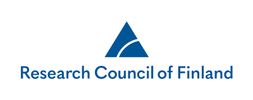Finnish researchers jointly lead international efforts to advance recovery from cardiac arrest
Researchers at 60 different intensive care units around the world are seeking to establish methods to expedite and improve post-cardiac arrest recovery at ICUs. The research is led by Markus Skrifvars, Staff Specialist in Anaesthesiology and Intensive Care and Professor of Prehospital Emergency Medicine at University of Helsinki, jointly with Professor Niklas Nielsen from Lund University. Professor Skrifvars’ part of the research is funded by the Research Council of Finland.
Every year, approximately 350,000 people in Europe and 1,500–2,000 people in Finland suffer from acute cardiac arrest. With rapid cardiopulmonary resuscitation, blood circulation can be restarted in roughly 30 per cent of the cases, with the patients then receiving further treatment at a university hospital or central hospital ICU. In Finland, for example, the number of patients treated annually is approximately 600–700.
Even with the circulation restored, there is a risk of hypoxic brain injury resulting from a lack of oxygen. “No specific treatments exist, although there have been attempts to establish one. It’s not been possible to verify factors that clearly reduce the development of brain injury,” says Skrifvars.
Professor Skrifvars’ part of the research entails trials to raise the patients’ blood pressure through medication. The aim is to maintain better blood supply to the brain and reduce the risk of brain injury.
The research also uses a large group of patients to investigate other interventions to further improve patients’ capacity for recovery. The researchers have ended up comparing alternative methods and goals for three different interventions. They are related to controlling the depth of sedation, body temperature and mean arterial pressure. The STEPCARE trial aims to identify the levels to achieve the best chance of recovery for patients.
“There are 3,500 patients across the world taking part in the research. We’re able to assemble a sufficient number of patients within a sensible time frame. With several different hospitals and patient groups involved, we can ensure definitive results with effective measures,” says Skrifvars.
Essential is the efficacy of the intervention, how the patient recovers and, first and foremost, whether the patient is still alive six months from the cardiac arrest. In cases where the heart stops and the person ends up in an intensive care unit, half of patients achieve good recovery and half die.
The extensive research project runs for 7–8 years. The research involves approximately twenty specialists from Finland and approximately 150 specialists globally. The entire care pathway is taken into account, involving both intensive care specialists, cardiologists, occupational therapists and physiotherapists.
“Once we have the results of our research, they may support existing recommendations or suggest entirely different policies. Our hope is that the care instructions based on the research published in 2027 will be adopted immediately the following year.”
As the research uses treatments that are currently in place, the risks are low and correspond to the standard risks related to treatment. The measures can be implemented anywhere in the world.
The countries involved in the research are Finland, Estonia, Sweden, Norway, Belgium, Luxembourg, the UK, Germany, Switzerland, Saudi Arabia, Singapore, Australia and New Zealand. The research is being launched in Ireland, the Netherlands, Austria, Italy, the Czech Republic and Kuwait.
More information
- Professor Markus Skrifvars, HUS/University of Helsinki, tel. +358 40 513 7862, markus.skrifvars@hus.fi
- About the STEPCARE trial
- About the societal impact of RCF-funded research
Avainsanat
Yhteyshenkilöt
Leena VähäkyläCommunications SpecialistResearch Council of Finland
Puh:+358 29 5335 139leena.vahakyla@aka.fiTilaa tiedotteet sähköpostiisi
Haluatko tietää asioista ensimmäisten joukossa? Kun tilaat tiedotteemme, saat ne sähköpostiisi välittömästi julkaisuhetkellä. Tilauksen voit halutessasi perua milloin tahansa.
Lue lisää julkaisijalta Research Council of Finland
Finland invests in research excellence – new funding call by Research Council of Finland to support recruitment of international talents16.4.2025 12:24:35 EEST | Tiedote
The Research Council of Finland (RCF) has launched a funding call to improve universities’ ability to recruit international experts to Finland. In line with the RCF’s strategy, the call will promote internationalisation and strengthen competence centres and research environments. With a preliminary total budget of 50 million euros, the call will fund university recruitments between 2026 and 2030.
Extended reality to help produce eco-friendlier food2.4.2025 10:59:17 EEST | Press release
Extended reality makes it possible to artificially modify human sensations. For example, researchers have succeeded in using extended reality to make vegetarian food even more attractive. “This could be one way of facilitating more ecologically diverse food production and, at the same time, encouraging people to eat healthier,” says Roope Raisamo, a professor in human-technology interaction at Tampere University, who has been carrying out research on extended reality for different use cases with funding from the Research Council of Finland (RCF) for years.
Consortia selected for second stage of SRC programme call18.3.2025 14:39:20 EET | Tiedote
The Strategic Research Council (SRC) established within the Research Council of Finland has invited 28 consortia to the second stage of the SRC programme call.
RCF publishes call documents and review guidelines for spring call5.3.2025 15:34:24 EET | Tiedote
The Research Council of Finland (RCF) today published the call texts for the 2025 spring call. The call texts are available in English, Finnish and Swedish. The review guidelines and forms are only available in English.
3,323 applications submitted to Research Council of Finland’s winter call14.1.2025 12:09:44 EET | Tiedote
The Research Council of Finland’s winter call 2025 closed on Wednesday 8 January with a total of 3,323 applications submitted. The total number includes consortium subprojects as separate applications. If each consortium is counted as a single application, the total number of applications comes to 2,846.
Uutishuoneessa voit lukea tiedotteitamme ja muuta julkaisemaamme materiaalia. Löydät sieltä niin yhteyshenkilöidemme tiedot kuin vapaasti julkaistavissa olevia kuvia ja videoita. Uutishuoneessa voit nähdä myös sosiaalisen median sisältöjä. Kaikki tiedotepalvelussa julkaistu materiaali on vapaasti median käytettävissä.
Tutustu uutishuoneeseemme